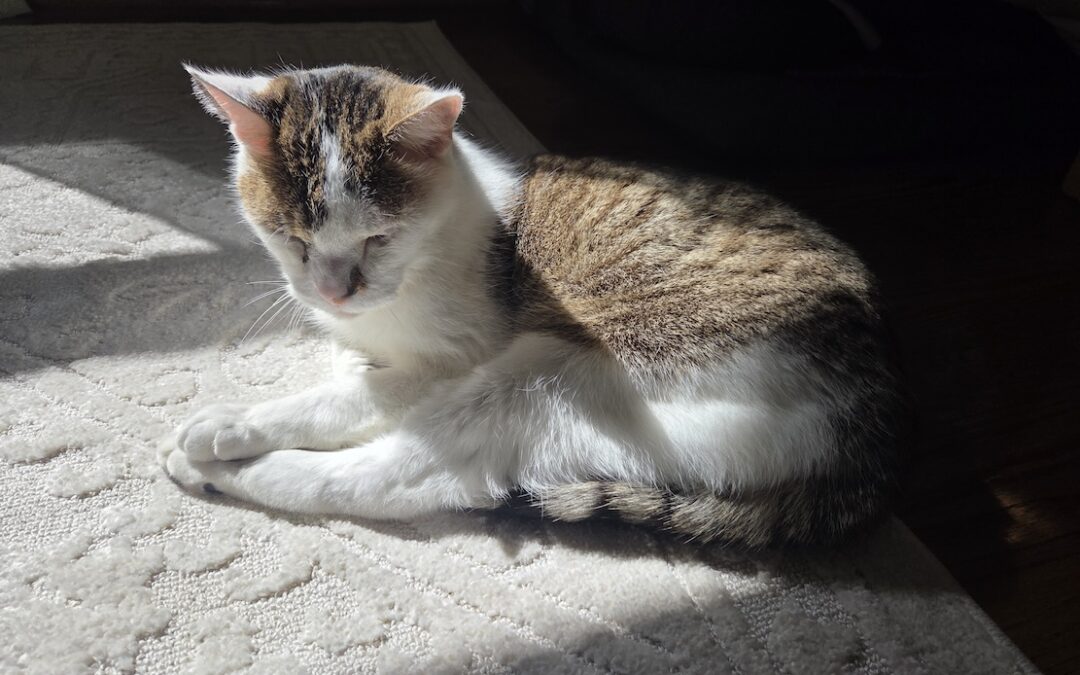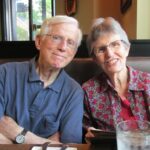It’s true: being with the dying comes naturally to many HSPs. It brings out, and requires, our best qualities.
During my years playing with the Honolulu Symphony in my twenties, I volunteered for Hospice Hawaii. I don’t remember how I even knew such a thing as a hospice existed, or why it occurred to me to volunteer for one. The experience stands out in my memory, though. I loved it. To keep company with someone who is dying is so simple, so real, and so essentially important.
Some ten years later, Dr. Elaine Aron created the first highly sensitive person (HSP) scale. She came up with 60 questions to which she was reasonably sure HSPs would answer “Yes.” She tested them to confirm her guesses, then narrowed the final total down to 27.
In the process, one question got dropped, even though virtually every HSP on which Dr. Aron tested it answered in the affirmative. The question was this:
Would you be willing to sit at the bedside of a dying stranger and comfort them?
I was willing. In fact, I had done it. Perhaps you have, too: in a hospice, or with a relative or friend or colleague. I experienced a surprisingly deep sense of affirmation, learning that I was not alone in this willingness. On the contrary. There is a quiet tribe of us who will sit with a person or a creature who is dying.
Perceiving the mystery and beauty of death
In her article about this, Dr. Aron wondered if the topic were too morbid for her newsletter, but decided that—
This is not morbid to us. We are drawn to the depths of the soul and to the mysteries of life and what lies beyond it. We are willing to be present. To hold hands, massage the feet, listen to the breathing, and wait for the moments of consciousness and the desire or thought whispered from the border between life and death.
After all, what could be more meaningful than to offer one’s presence to someone who is about to cross to a place none of us has ever been? Our HSP empathy and our sensitivity to subtlety both serve us well here. As Dr. Aron put it,
I think HSPs also understand something I heard said in a course on tending the dying: “Each person needs to have what is, uniquely for him or her, an appropriate death, not an appropriated death…” These [details] should be decided by no one but the dying person, and HSPs are much better at understanding this and finding out what the person wants.
Chairman Whiskers is dying
I mentioned in my last post that Chairman Whiskers, our foster cat, had had a scary incident the previous week. He was screaming in fear and pain, his legs contorting at strange angles. It happened again ten days later. This time, I was able to take videos.
The vet said these incidents were definitely seizures, most likely caused by lymphoma. We had been struggling to give the Chairman the liquid seizure medicine the clinic had prescribed, and the vet said that if we couldn’t figure that out, the only humane way forward would be to put him down now.
The shelter’s “cat whisperer” rescued me. I visited her at the clinic the next day, and she calmly and kindly taught me how to administer pills. There in the exam room with her and the Chairman, I could see my HSP strengths and challenges at play:
- Empathy and compassion for the Chairman’s distress, which made it hard for me to judge whether it was OK to restrain him; she did, and while he wasn’t happy, he was fine afterwards.
- Conscientiousness, which (along with care for this cat) motivated me to spend hours over the past few days studying videos and trying to find a way to give him his meds.
- Fear of criticism: a part of me got really scared, imagining the shelter would “fire” me (in reality, they’ve been deeply appreciative of our care of the Chairman.)
- Overarousal: I was shaking after my first solo attempt to give him his pills at home, because he was growling the whole time, and the stakes felt high.
All these reactions are related to my sensitive make-up: they are part of me. But I can hold them well enough that I can still learn, even under that kind of pressure. As a result, I can do the pills myself now. I’m so relieved. With luck, we’ll have a bit more precious time with this lovely, loving animal.
Being attentive is a joy—and an HSP strength
Dr. Aron spoke of learning what the dying person wants. The Chairman can’t use words, but he communicates clearly with us. The main message I hear from him is, “I want to be with you!” If I come upstairs, he saunters up a few minutes later. If I go back down to the kitchen, I’ll soon hear a chirrup behind me.
He’s hardly eating. He still loves to be brushed, though, and to pounce on his knotted string, and to be scritched under the chin. He just wants to give and receive love. It’s such a gift, and all the more so given the chaos we are experiencing in my country right now. I’m grateful to the Chairman for reminding me of what really matters.
I’m not saying money and politics and things like that don’t matter. Of course they do. But if I had to name the biggest gift of being highly sensitive, it would be our attunement to the deep meaning of being alive, which includes the poignant awareness of death.
Death is a beautiful mystery. It reminds us that life is precious. From that perspective, we can savor being alive. We can also meet our daily stresses from a much more resourced place within ourselves.
Image: ©2025 Emily Agnew




















Very important discussion; thank you for raising this topic. Lately, after being retired 11 years, I wonder why I was attracted to and continue to be involved in the specific type of volunteering I do – offering support to siblings who are grieving after their sibling has died. I appreciate your insights on the strengths and challenges as seen how you care-give to you cat – that was a good way for me to gently look at my own caregiving attributes. I appreciate your giving your readers ‘food for thought’ through your newsletter.
Thank you for your blog posts. They always strike a chord and serve as an important reminder that sensitivity can be a gift, even when it doesn’t always feel that way.
Thank you as I journey with my brother James who has been hospitalized since July who has double pneumonia, on oxygen. I have been with him for one week, this article affirmation was life giving!
Maria, I’m so glad to hear this was helpful for you as you live through what must be a profoundly poignant time, sitting with your brother. I send my best care to you, to him, and to your family. It is a gift for him I am sure, to have your company.